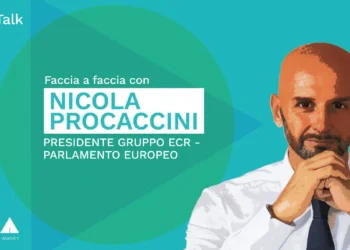Rome – “Forza Italia and the European People’s Party have already imagined that the next legislature should focus on a ‘Good Deal’.” Salvatore De Meo, chairman of the European Parliament’s Constitution Affairs Committee, member of the ITRE and AGRI Committee, and candidate in the European elections next June 8-9 for the Italy-Central constituency, highlights what has not worked in the green transition embarked upon five years ago. “The Green Deal, which was born in 2019, did not take into account those epochal events that no one imagined, such as the pandemic, the two war scenarios and above all the ideological resistance of some political groups traceable to Timmermans, who did not even want to open that debate, Debate that then had to be inevitably opened in the final part of this legislature to make these ambitious, legitimate and shareable goals feasible,” he says during the #GeaTalk.
Thus, for De Meo, “the next legislature must not backtrack,” but make sure that certain goals are “achieved in a realistic, pragmatic way always emphasizing that environmental sustainability must be combined with social, economic and productive sustainability.” To summarize, the future “is to make this Europe realize that real life is a little different from the one described by some technocrats, who have taken over from an absence of politics that manages to define a vision.”
The line “is drawn and cannot be erased,” according to De Meo. The reference is to challenges such as “the green and digital transitions, but these need to be reviewed in light of what has happened and impacted all the dynamics of the Planet. We must insist but with an environmentalism that does not become ideological, with pragmatism, so that environmental sustainability is also implemented from a social, economic and productive point of view.” The goal is to “make our Europe increasingly autonomous and competitive: only in this way will we be able to be seated at the table that counts, as equals and not subordinate to other continents,” he adds. “Therefore, we cannot fail to look at everything related to food and energy autonomy, preserving our prerogatives and values.
Between new CAP and renewables, agriculture will take a central role in Europe in the future. De Meo follows through: “We are against the photovoltaic occupation of agricultural land that, instead, must be allocated to primary functions. We are also against the invasion of entire photovoltaic or wind farms in certain environments that, among other things, would be violated in their landscape and naturalistic identity,” he attacks. He gives concrete examples: “In the region of Lazio, as well as in Tuscany or Puglia, I believe that we cannot fail to look at both photovoltaics and renewables in general, with a regulatory framework that also avoids a defacement of our environment. Because we cannot live by the environment alone, we must combine environmental policies with industrial, social, and production ones.”
The PAC has brought tractors in Brussels and violent protests. De Meo points out, “Forza Italia and the European People’s Party, and other political groups, had been signalling for years that we were going in a direction that would exasperate the agricultural production system. We had to register this with a tension beyond the legitimate demonstration of those put in the dock and defined as the world’s polluters.” Thus, De Meo continues, “The first narrative to be overturned is precisely this. Indeed, farmers are the sentinels of the environment, the ones who take no pleasure in using pesticides or wasting water. But they need to have tools that allow them to be competitive and ensure our food security.”
The June 8 and 9 election date is an opportunity to be seized, says De Meo, who is aware that the European elections have little appeal to Italians and that the election campaign risks becoming just a test of strength for internal use. Change is in the air: “The European People’s Party has not ruled out reservations and criticism to Ursula von der Leyen, who, in this legislature, also because of a majority that at times has leaned too far to the left, has taken positions that were too flattened on a vice president, Timmermans.”
And what about Mario Draghi? Better at the presidency of the Council or the EU Commission? “We cannot make any kind of prediction; we have to wait for the outcome of the elections,” De Meo points out. I do not imagine names other than those within the physiological perimeter of the current rules and that have seen the individual political groups, including the EPP, make a procedure to identify their candidate. Draghi is an authoritative name, but I don’t think we should resort to the authoritative name at this time, even before we understand what our electoral findings are.”
English version by the Translation Service of Withub





